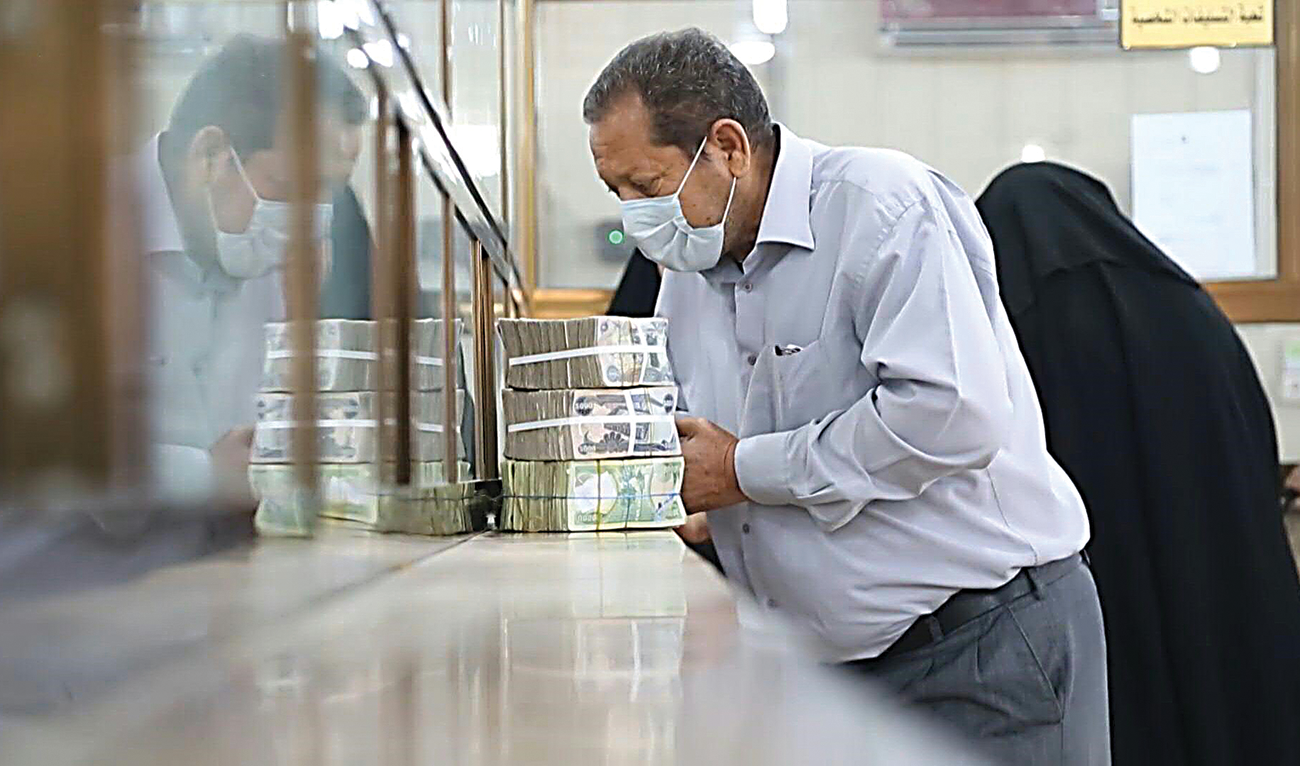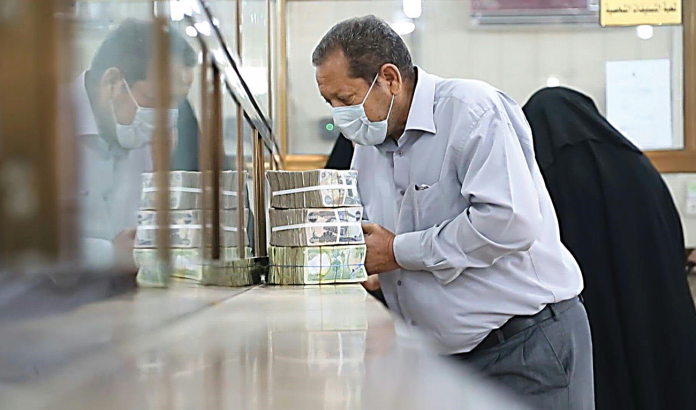DIWANIYAH: The bustling streets of Iraq’s biggest cities are lined with private and public banks that promise investment and credit. But businesses barely use them and individuals do not trust them.
“Iraqi banks today are still so far away from global standards,” said Abbas Anid Ghanem, an Iraqi economist and lawyer based in the southern city of Diwaniyah.
The problems date back decades, Ghanem said.
In the 1990s, Iraq was isolated from the outside world by crippling sanctions on then-dictator Saddam Hussein that blocked financial transactions with the country.
Following the US-led invasion in 2003, widespread looting saw bank vaults emptied of any cash, even as businesses from around the world were flying into Iraq to sniff out reconstruction deals.
More than 70 banks have popped up since, but the sector as a whole remains underdeveloped.The three largest — Al-Rafidain, Al-Rasheed and the Trade Bank of Iraq (TBI) — are state-owned and hold about 90 percent of the entire sector’s assets, the World Bank said in 2018. The first two suffer from “capital deficiencies and asset quality problems,” the World Bank said, meaning they are short on deposits and have risky credits.
TBI was established in a 2003 decree issued by the Coalition Provisional Authority, which managed Iraq post-invasion.
“TBI was meant to help Iraq develop and rebuild, but it was affected by sectarian power-sharing and financial corruption,” said Ghanem.
Now, the bank is the Iraqi government’s main conduit for international transactions but provides few loan options or other services.
The top trio have been used mainly for paying salaries and pensions to eight million Iraqis.
But after collapsing oil prices this year drained state coffers, the government had to borrow from state-owned banks for those wages, increasing its domestic debt. Of the 60 private banks in Iraq, most are domestic and operate primarily as exchange houses.
Iraqi businessmen say that the banks’ unappealing profiles are hampering the development of the private sector.
“Iraq’s public banks don’t have the mechanisms for global transactions and don’t seek to draw in entrepreneurs,” real estate developer Adel Salhi said.
“TBI is the only one that allows investors to open lines of credit, but it does not offer professional services and it demands enormous guarantees — sometimes as high as 110 percent to deliver a letter of guarantee,” he said.
Salhi and his Al-Akhiar group have opted to use a foreign bank, like many other Iraqis who turn to Jordan, Turkey, Iran or Lebanon to facilitate their transactions.
Most companies in Iraq still operate in cash: only 26 percent use the formal banking system, the World Bank said. All but 2 percent pay their employees in hard currency and nearly half even pay their suppliers that way.
Less than five percent of Iraq’s small and medium-sized businesses have a domestic bank loan, with most borrowing from family and friends instead.
Ghanem said that is because business loans come with exorbitant interest rates up to 10 percent.
Despite being OPEC’s second-largest crude producer, Iraq is also ranked 172 out of 190 in the World Bank’s “Doing Business” report — barely ahead of Afghanistan or war-ravaged Syria.
For individuals, too, banks are a bane. There is little public trust in financial institutions, with many Iraqis still smarting over the looting of public banks in 2003 that cost them their life savings.

Iraq’s president wants upcoming elections free from fraud or manipulationDefiant protesters hit streets in south Iraq for second day

